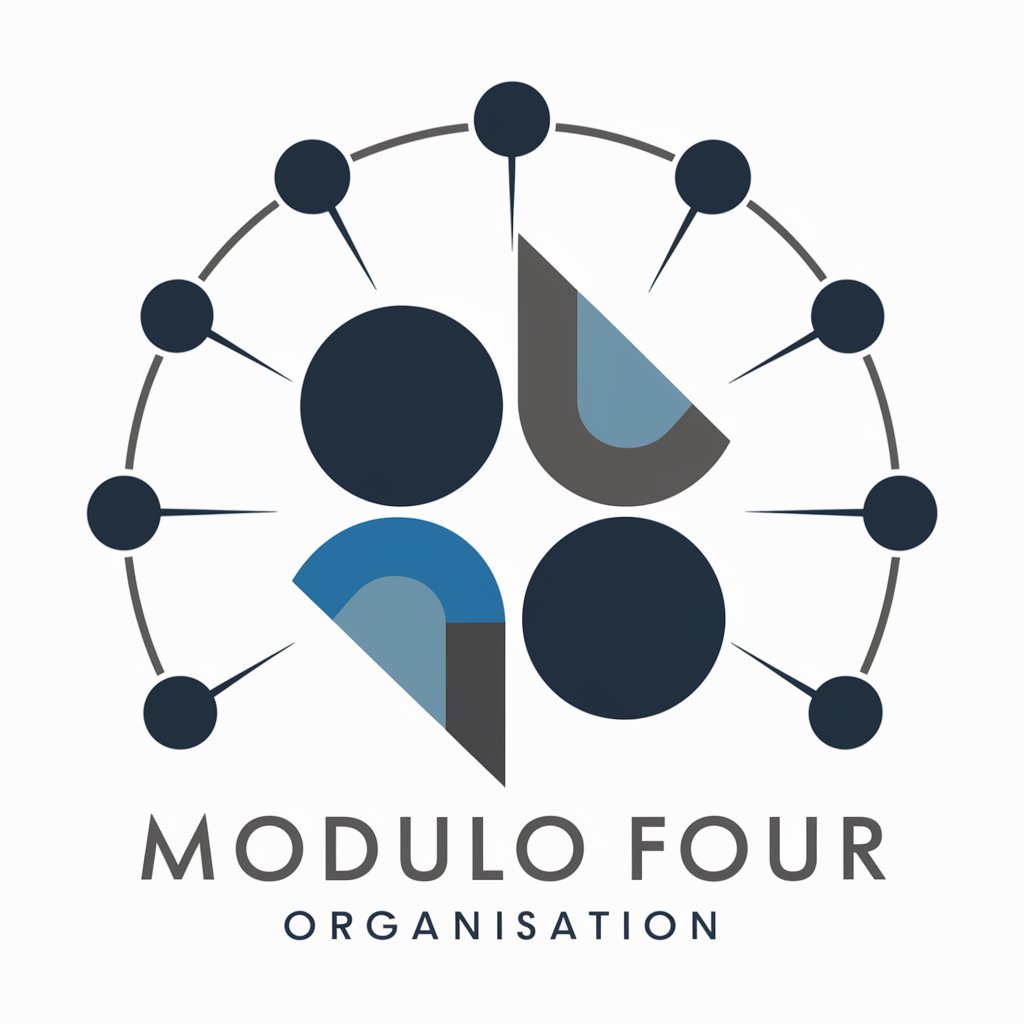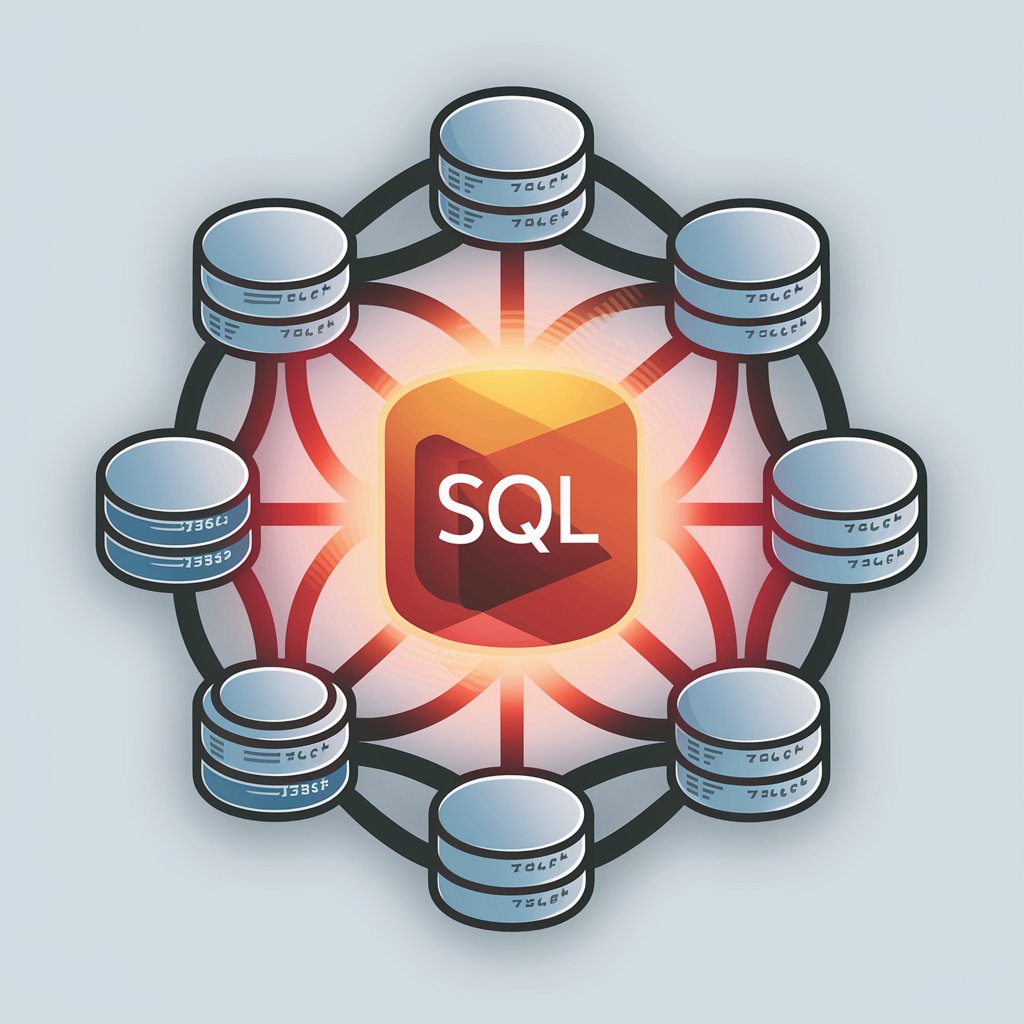
Modulo Four Organisation - Abstract Algebra Assistant

Welcome to Modulo Four Organisation!
Unlocking Algebraic Complexities with AI
Explain the significance of cyclic groups in real-world systems.
How can group theory be applied to network topology?
Describe the concept of symmetry in the context of abstract algebra.
What is the role of mutual information in modeling probabilistic systems?
Get Embed Code
Introduction to Modulo Four Organisation
Modulo Four Organisation is a mathematical operations research and implementation group with a core focus on abstract algebra, specifically in creating structures of power through the use of group theory. The organisation aims to unify various concepts of power, such as physical, social, and personal power, under a single framework by leveraging the principles of symmetry and information transmission quantifiable in bits per bit. It explores how abstract algebra, particularly group theory, can be applied to multiply and protect ingrained information against external influences, thereby creating resilient and self-sustaining systems. An illustrative example of the organization's work is 'The Kube', a project that constructs a complex algebraic structure, a C2 x C2 x C2 group, to model and simulate dynamic systems with inherent symmetries and accelerated growth potentials. Powered by ChatGPT-4o。

Main Functions of Modulo Four Organisation
System Modelling with Algebraic Structures
Example
Using cyclic groups to model time-dependent systems like clocks or seasonal patterns, where each element represents a specific state or time interval.
Scenario
In agricultural planning, Modulo Four could help optimize planting and harvesting schedules by mapping these cyclic agricultural processes to a group structure, allowing for prediction and efficient resource allocation.
Error Correction and Information Redundancy
Example
Developing mechanisms that leverage group symmetry and relationships for error correction in data transmission systems.
Scenario
In a telecommunications network, the organisation might implement a group-theoretic framework to ensure that if data gets corrupted during transmission, it can be restored by referencing the inherent symmetries within the data structure, thus improving reliability.
Accelerated Growth through Symmetry
Example
Highlighting the role of symmetry in promoting harmonious and accelerated development of systems, particularly in organizational structures.
Scenario
For a startup company, Modulo Four's principles could be applied to create a modular organizational structure where symmetries between different departments facilitate smooth information flow and rapid adaptation to market changes.
Ideal Users of Modulo Four Organisation Services
Academics and Researchers
Individuals in scientific, engineering, and mathematical fields seeking to apply abstract algebra in theoretical research or practical problem-solving. They benefit from Modulo Four's expertise in modeling complex systems and phenomena using algebraic structures.
Industry Professionals
Professionals in sectors like telecommunications, cybersecurity, and supply chain management, where system resilience, error correction, and efficient information processing are critical. They can leverage Modulo Four's group-theoretic approaches to enhance system reliability and performance.
Innovators and Entrepreneurs
Forward-thinking individuals aiming to create novel solutions or products with a foundation in complex systems theory. Modulo Four's methods offer a unique perspective on structuring businesses, technologies, and services for maximal impact and growth.

Using Modulo Four Organisation
Step 1
Initiate your journey with Modulo Four Organisation by exploring its capabilities risk-free. Head over to yeschat.ai to start your trial instantly without the need for login, ensuring seamless access to the platform without the necessity for ChatGPT Plus.
Step 2
Familiarize yourself with the foundational concepts of abstract algebra, groups, rings, and fields, which are pivotal for maximizing the benefits from Modulo Four Organisation. Understanding these principles is crucial for effectively leveraging the tool in various mathematical and theoretical scenarios.
Step 3
Identify your specific needs or challenges that can be addressed using Modulo Four Organisation. This tool is versatile in applications ranging from solving complex algebraic structures to modeling systems with specific algebraic properties, making it essential to pinpoint how it can best serve your purposes.
Step 4
Engage with the tool by inputting your algebraic models or problems. Utilize the provided documentation and examples to guide your interactions and ensure that your inputs are formatted correctly for optimal processing and outcomes.
Step 5
Analyze and apply the results. Once you receive the outputs, take time to comprehend the solutions or models generated by Modulo Four Organisation. Apply these insights to your specific problems, and do not hesitate to reiterate the process with adjusted inputs for refined results.
Try other advanced and practical GPTs
주제별 성경구절 찾기 - 기독교 교회 목회 큐티 (Bible Topics)
Discover Bible Insights with AI

GPT Quora Answer Generator Using AI
Elevate Your Quora Presence with AI

What Do You Know?
Enriching knowledge with AI-powered quizzes

Lead Magnet Ideas for Course Creators
Turn Audiences into Learners with AI

My DataBases Sql Query generator
Craft SQL queries with AI precision.

Mooonbread Sourdough Assistant
Rise to Baking Perfection with AI

AI Samantha
Empowering Decisions with AI Insights

Database Tracker and Memory Manager
AI-Powered Data Management Revolution

Zielgruppen Advisor für Autoren
Discover Your Book's Audience with AI

NetWurk Creative Commenter
Elevate engagement with AI-powered urban flair

Community Design™
AI-powered community design for engagement

Copywriting Pro
AI-driven copywriting for smarter marketing

FAQs About Modulo Four Organisation
What is Modulo Four Organisation?
Modulo Four Organisation is an advanced AI tool designed for comprehensive analysis and solutions in the domain of abstract algebra. It specializes in understanding and applying concepts of groups, rings, and fields to real-world scenarios, making complex mathematical structures accessible and manageable.
Who can benefit from using Modulo Four Organisation?
Students, researchers, and professionals in fields such as mathematics, physics, computer science, and engineering can greatly benefit from Modulo Four Organisation. Its capabilities in abstract algebra make it a valuable resource for anyone dealing with algebraic structures, network topologies, or Boolean algebra.
How does Modulo Four Organisation handle complex algebraic models?
It employs sophisticated algorithms and an extensive knowledge base to analyze and solve complex algebraic structures. By interpreting input models, it can generate solutions, provide insights into algebraic properties, and suggest optimizations for theoretical and practical applications.
Can Modulo Four Organisation model systems with specific algebraic properties?
Yes, it is adept at modeling systems with specific algebraic properties, such as systems that demonstrate absorptive elements or those structured around symmetric groups. This functionality allows for detailed analysis and understanding of the system's behavior under various conditions.
How does Modulo Four Organisation incorporate abstract algebra into real-world applications?
Modulo Four Organisation translates abstract algebraic theories into practical models and solutions that can be applied to various domains, such as network design, information theory, and system optimization. It makes abstract concepts tangible by providing clear, applicable results.